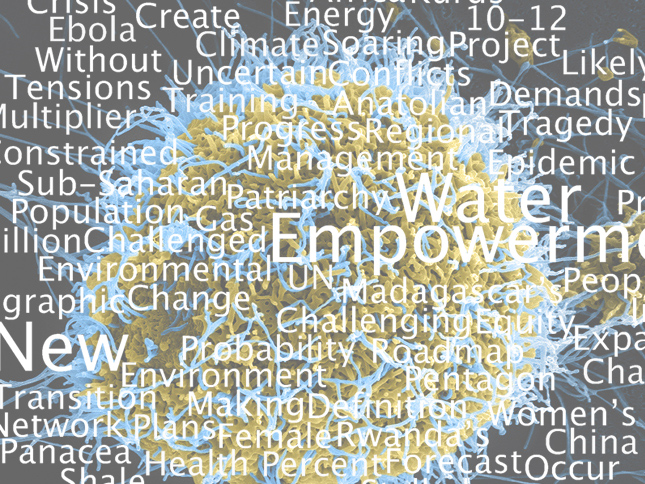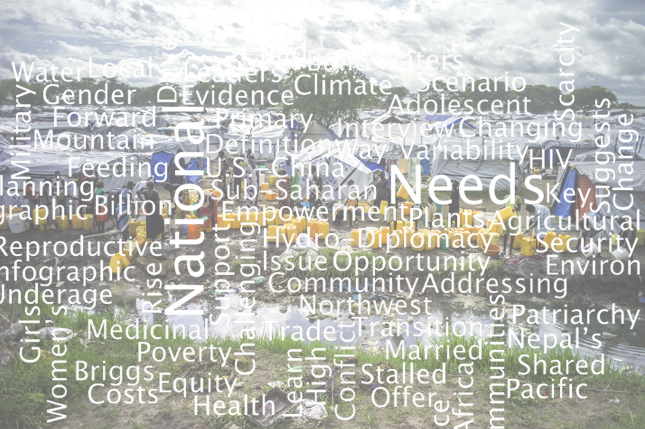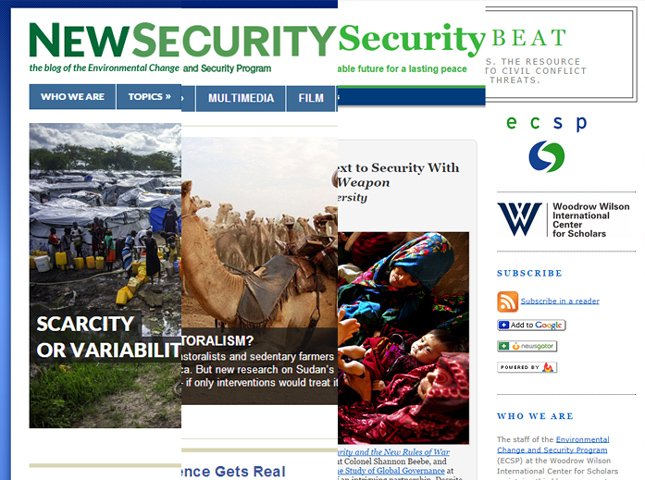-
Top 10 Posts for 2014
›
The drivers of this year’s Ebola epidemic – the worst on record and the first to reach multiple continents – are structural and deep, wrote Laurie Mazur in one of this year’s most-read articles. Deforestation, persistent poverty, and perhaps most importantly, crumbling trust in public institutions all played critical roles in sparking a fire still smoldering in West Africa.
-
‘Extreme Realities’ Sheds Light on Links Between Global Climate Dynamics and National Security
›“We cannot ignore the new reality that climate change has become a major foreign policy issue in the 21st century,” a new film by Hal and Marilyn Weiner concludes.
-
Feeding Unrest: A Closer Look at the Relationship Between Food Prices and Sociopolitical Conflict
›
From the Roman poet Juvenal’s observations about bread and circuses to Marie Antoinette’s proclamation, “let them eat cake!” the link between food and political stability is well established in pop culture. In academic and policy circles, however, it’s a source of considerable debate.
-
Water and New Development Path Are Priorities in U.S.-China Climate Agreement
› NEW DELHI, India – There are nearly 1.3 billion people in this swarming democracy, where over 66 percent of eligible voters cast ballots in the general election last May. A few of them took me aside this week to express surprise at the puzzle that is the American electorate and its national leadership.
NEW DELHI, India – There are nearly 1.3 billion people in this swarming democracy, where over 66 percent of eligible voters cast ballots in the general election last May. A few of them took me aside this week to express surprise at the puzzle that is the American electorate and its national leadership. -
Top 10 Posts for October 2014
›
The largest outbreak of Ebola on record has sparked intense second-guessing of authorities around the world, and lack of trust in public institutions was a major factor in its spread through West Africa, wrote Laurie Mazur last month.
-
Top 10 Posts for September 2014
›
What if it’s not increased scarcity that’s most disruptive about climate change, but variability? Cullen Hendrix explains how new research on water conflict suggests that’s the case in last month’s most popular story.
-
20 for 20: Celebrating Two Decades Tracking the Environment, Population, and Security
›
It’s been 20 years since the Environmental Change and Security Program was founded to shed light on the new security issues of our times, so in honor of this anniversary, we’ve rounded up the 20 most popular stories of all time.
-
Global Youth Wellbeing Index Launched
›An estimated 1.8 billion people today are between the ages of 10 and 24 and 85 percent of them live in developing economies and/or fragile states. Such youthful age structures can lead to a number of challenges, including increased potential for instability, and countries with large numbers of young people must find ways to address their unique needs.
Showing posts from category meta.


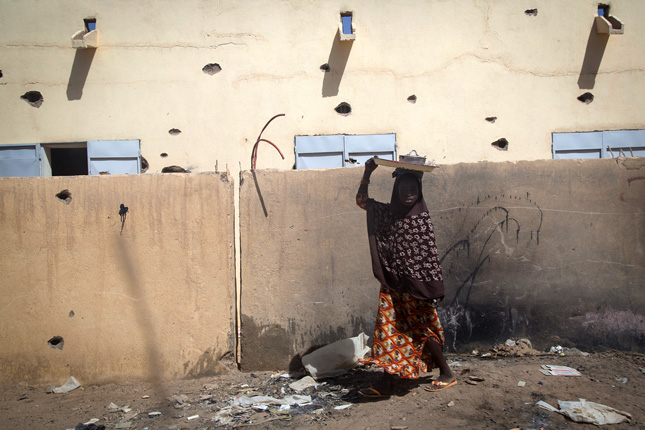
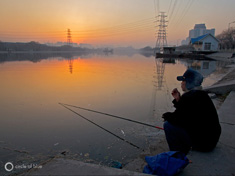 NEW DELHI, India – There are nearly 1.3 billion people in this swarming democracy, where over 66 percent of eligible voters cast ballots in the general election last May. A few of them took me aside this week to express surprise at the puzzle that is the American electorate and its national leadership.
NEW DELHI, India – There are nearly 1.3 billion people in this swarming democracy, where over 66 percent of eligible voters cast ballots in the general election last May. A few of them took me aside this week to express surprise at the puzzle that is the American electorate and its national leadership.